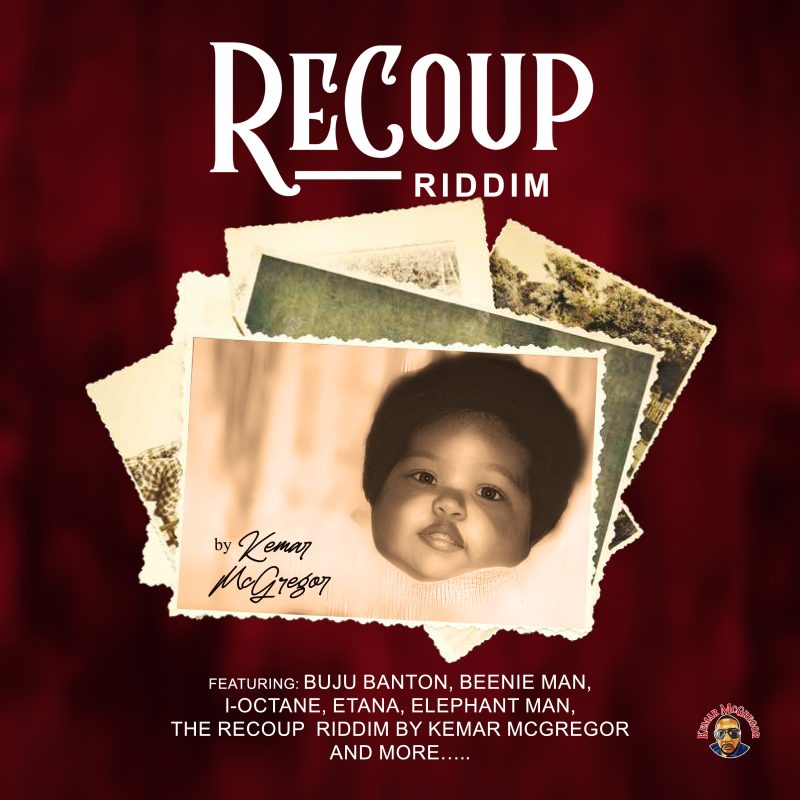
Music Link: https://open.spotify.com/album/5tVod8UFEEy2rmlgZ8vnuk?si=d77QyxR9QhCR9we6fFMIGw
In a time marked by ever-changing music trends, Kemar McGregor remains steadfast in his commitment to preserving the timeless essence of ’90s dancehall. His latest endeavor, ‘The Recoup Riddim’, serves as a testament to this dedication, as he seeks to revive the golden age of Jamaican music.
When asked about his motivation for exploring the realm of ’90s-inspired dancehall amidst the contemporary music scene, McGregor referenced his experiences collaborating with international recording artists and labels. He noticed a prevailing sentiment that modern Jamaican music lacks the authentic essence of dancehall and reggae, prompting him to evoke the magic of the era pioneered by legendary producer Dave Kelly.
Reflecting on his creative process, McGregor fondly recalled the infectious vibe of ’90s dancehall mixtapes by luminaries like Collin Hinds. With The Recoup, he aimed to capture the raw energy and distinctive style that characterized the genre’s heyday.
Drawing inspiration from iconic producers such as Steely and Clevie, Sly and Robbie, and King Jammy, McGregor meticulously integrated authentic dancehall elements like drum patterns, basslines, and effects. Striking a delicate balance between honoring tradition and embracing modernity, McGregor stressed the importance of preserving the integrity of ’90s dancehall while infusing subtle contemporary touches.
As The Recoup resonates across global airwaves, McGregor hopes to reignite a fervent appreciation for authentic dancehall music. His collaboration with renowned artists such as Buju Banton, Etana, Elephant Man, Beenie Man, Tifa, and I-Octane underscores the universal appeal of ’90s-inspired dancehall.
“I believe in maintaining the original dancehall sound as it is, as it’s inherently perfect and requires no alteration. However, for those seeking to infuse a more modern feel into dancehall, it’s important not to stray too far from its authentic roots and risk transforming it into a different genre. By involving younger artists who are eager to learn and are genuinely interested in reggae and dancehall, we can incorporate contemporary elements while preserving the essence of the genre,” McGregor emphasized.
